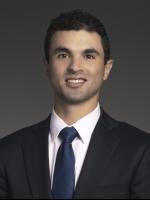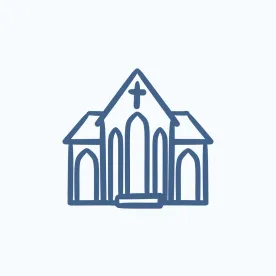The Department of Education (“DOE”) recently proposed new regulations to address how colleges and universities deal with speech and religious student organizations. While the First Amendment and principles of academic freedom have long protected speech on campus, the DOE’s proposed regulations would add a new layer of protection—the threatened withdrawal of federal funding. Under the new rules, federal funding would be available only if (1) a public institution complies with the First Amendment; (2) a private institution complies with its stated policies on freedom of speech; and (3) a public institution provides the same benefits to religious student organizations that it grants to secular student organizations. The comment period on the regulations is closed.
The First Amendment Rules
The first two proposed rules are similar even though they are designed for two different types of institutions. Aimed at promoting academic freedom and at mitigating what the Department calls “a pervasive problem of the denial of free speech rights across American college campuses,” the rules make compliance with First Amendment principles a “material condition” of funding. The Department found that “the suppression of free inquiry is a concrete, real harm on campuses today” and that some academic administrators believed that “quieting unsavory opinions will lead to a more calm, productive learning environment.” It therefore proposed rules for both public and private institutions aimed at mitigating these perceived problems.
Public institutions would have to comply with the First Amendment. While the First Amendment has long applied to such institutions, the Department threatened to increase the penalty by withdrawing funding if a state or federal court has entered a final, non-default judgment that the institution, or its employee acting in an official capacity, violated the First Amendment.
Private institutions – which are not state actors subject to the First Amendment – would have to comply with certain free speech principles. Rather than condition funding on compliance with the First Amendment, the Department would require private institutions to follow their own “free speech policies.” In other words, federal funding will be pulled if a state or federal court has entered a final, non-default judgment that the institution, or its employee acting in an official capacity, violated the institution’s own free speech policies.
Logistically, an institution will have to self-report an adverse final decision to the Department within thirty days of its entry. The Department would then have the discretion to pull funding, but schools would have a chance to appeal any penalty.
Three points are worth noting. First, private institutions may face inconsistent enforcement. While the law surrounding the First Amendment is relatively uniform, that is not true for the law involving the free-speech policies of private institutions. Those cases often turn on state law, which can vary considerably between jurisdictions. This could mean that the requirements for a private school’s federal funding would vary from state to state. Second, and relatedly, the proposed rules do not provide any guidance to private schools on free-speech policies. Once again, the same institutional conduct could result in different outcomes, leading to inconsistent enforcement. Third, the proposed rules might cause more institutions to settle First Amendment or free-speech cases. After all, these regulations raise the stakes in such cases by putting federal funding at risk.
The Membership Rule
The third proposed rule requires public institutions to treat religious and secular student organizations equally. The Department said that the rule would “enable individuals sharing common characteristics or beliefs to unite towards common goals” and promote “the right of a student organization to limit its leadership to individuals who share its religious beliefs.” The Department therefore made it a requirement of federal funding to make sure there is no disparate treatment of religious organizations. However, it did not propose a standard for deciding whether disparate treatment has occurred.
It is unclear how the proposed rule would be affected by the Supreme Court’s decision in Christian Legal Society Chapter v. Martinez, 561 U.S. 661 (2010). In that case, an institution’s nondiscrimination policy required student organizations to accept “all comers” – i.e., to allow any student to participate, become a member, or seek leadership positions, regardless of status or beliefs. Failure to adhere to the policy would prevent the institution from recognizing the student organization, which conferred several benefits, such as funding. Citing this policy, the institution refused to recognize a religious student organization with bylaws that excluded students who engaged in “unrepentant homosexual conduct” or held religious convictions different from those of the organization. The Supreme Court upheld the institution’s all-comers policy, concluding that it was a reasonable, viewpoint-neutral condition of recognition and funding.
The Department has not addressed Martinez or the tension between that case and the proposed rules. It should also be noted that the Department also did not address two other recent Supreme Court cases: (1) Trinity Lutheran Church v. Comer, 582 US __ (2017), where the Court held that excluding churches from an otherwise neutral and secular aid program violates the Free Exercise Clause or (2) Espinoza v. Montana Department of Revenue, a pending case in which the Supreme Court will decide whether a state student-aid program violates the First Amendment because students may use the aid to pay for tuition at religious schools.
Conclusion
It remains to be seen whether or in what form the proposed rules will be adopted. The comment period has closed and there is no timeline for when the Department can be expected to issue revisions. But institutions should be aware that the Department is focusing on these issues, and should consider revisiting their policies, practices, and procedures in light of the proposed rules.





 />i
/>i

